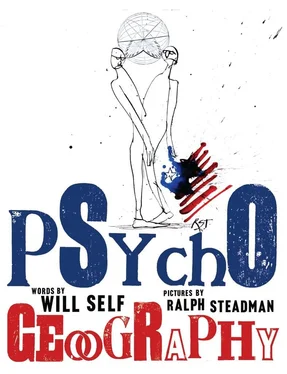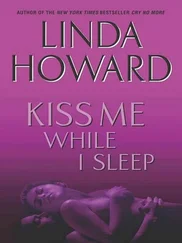Striding outside the terminal for a cigarette, I pace, puffing, up and down the confines of the sidewalk. Darkness has fallen, it’s 9.00 p.m., and beyond this oasis, planted with light palms by the overhead lighting, the concrete bled of the airport is all around. I can see cabs, the lifts up to the Skytrain, private cars picking up and dropping off, but no conceivable way of exiting the terminal except along the roadway itself.
Back inside I approach the Ground Transportation desk, just for the hell of it: this is staffed by Elizabeth and Keisha, the former heavyset and dour, the latter young and enthusiastic. Keisha is, it transpires, a Trinidadian-American. Elizabeth couldn’t be less interested in my need to walk out of JFK, but Keisha — once I’ve explained how I’ve already walked from my London home to Heathrow — gets it:
‘Oh, I see!’ she exclaims, ‘It’s, like, a quest.’
No, no, it is a quest — there’s no likeness implied. It’s a quest for identity, and a search to find that urgent commingling of blood and soil. But no matter what enthusiasm she may possess, Keisha still has no idea of how to walk out of JFK. It’s left to me to hitch up my nylon rucksack, pull down my tweed cap, and step off the kerb into the night. It’s warm in this, the Country of the Climate Change Deniers, and the man wearing a cashmere pullover under a cagoule is a poltroon. Within yards of the terminal I’m sweating — while striding purposefully along the hard shoulder, my own synthetic one swishing against the crash barrier.
Luckily, the airport is shutting down for the night, so traffic passes me in little fits and hissing spurts. That I’m dressed in black is providential; even so, every second I expect a police siren to squawk and blades of blue light to slash through the orangey morass. In the mid-distance I can see the Kennedy Expressway, paring away towards the Nassau. How am I going to avoid being sucked into this? Will there be a slip road out of here? A hundred metres, two hundred. . five hundred. . and there it is! A single-lane chute up and away from this trackless waste of tarmac. At the top there’s a homely stop sign, then it falls back down again to join another highway, but at least here there’s a verge.
Plodding along this, still sweaty and fearful, I see a taxi lot over on the far side. Where there’s a taxi lot, I figure, there has to be a way out of the airport at street level. Should I risk crossing six lanes and two crash barriers to reach it? Or should I keep on keeping on? After another 500 metres and no sign of a way forward, I decide on the traverse, and start off, only to beat a retreat when a swarm of enemy chariots bears down on me.
At last, I see a second slip road. It leads me to the right, loops under the overpass. I work my way between some cargo hangars — then suddenly: here I am, strolling across the bridge over the Belt Parkway and on to 150th Street. I’m no longer in terra nullis, I’m in South Ozone Park, NY. A gas station looms up ahead and it looks like the cosiest, most gemütlich thing I’ve seen in all my born days. There’s a thicket of Stars and Stripes planted by the doors.
Inside there’s a charming Asian clerk with band aids on the fingers of one hand and a rubber glove on the other. He’s sold out of Poland Spring Water. A black man stands by a rack of Hershey Bars and M&Ms, rubbing at a scratch card with a dime. The front page of the New York Post features the ‘bimbo summit’ of Lindsay Lohan, Britney Spears and Paris Hilton. Clearly, I have stepped on to America.
The Crowne-Plaza Hotel at Baisley Park, Jamaica, has nothing to recommend it save its proximity to the airport — and I like that. I even like my room, which, as is traditional for the unaccompanied male guest, arriving on foot, late in the evening, is right next to the elevator shaft. A restless night ensues; I sleep with the radio on and in between the clunks and whirrs of the elevator, news rolls into me of Danny DeVito, drunk on The Barbara Walters Show ; the continuing investigation into the shooting by cops of an unarmed black man, Sean Bell, on his stag night in nearby Queens. Further off, 3,500 US troops are being moved to Baghdad from the surrounding provinces, while the Iraq Study Group’s report is due within the week. Rumsfeld has taken the fall for all of the Administration, which is being worried in the bloodied jaws of Baghdad.
In the middle of the night I stir and — purely because I can — smoke a cigarette. It’s as acridly unpleasant as a chemical incident. As I gargle the toxic gunk, the rolling news throws up on my gritty consciousness this: a story of a killer whale at San Diego Sea World that has taken its trainer in its jaws and worried him, as a terrier might an invasive rat. ‘I don’t see why he would do that. .’ says a bemused spokesman. Sunni insurgents — killer whales; as we say in London: ‘same difference’.
I wake to the weather forecast for boulevardiers : a spruce lady in red, in front of the eighty-eight-foot-high spruce outside the Rockefeller Center, which is topped with a Swarovski star. By mid-afternoon, she tells us, the high in Central Park will be 70 degrees, the warmest November day since 1991, and the second warmest ever recorded. I needn’t have brought the pullover, or my tombstone of a book, either, The Power Broker: Robert Moses and the Fall of New York by Robert A. Caro. My brother sent it to me, in anticipation of my walk. Surely the biography of Moses — the key figure in city planning and governance for nigh on half a century — will be enough to anchor me in the city? After all, Baisley Pond Park, the scrap of Astroturf underlay without the Crowne-Plaza, is a Moses plantation. Isn’t this one of the frame of referents that I can peg my observations to, as I trudge through East New York and Brooklyn?
For this is the worry. I may have escaped from the Empty Quarter of JFK, yet Jamaica, Ozone Park, Woodhaven, Brownsville, these — as Midge Ure would doubtless have sung, if faced by the same predicament — mean nothing to me; in place of London’s narrative plenitude I’m faced by the blank slate of New York. Will anything occur to me as I plod along? Will I see anything? Talk to anybody? Or might I be thrown back into my own wildly prosaic psychic hinterland, and find myself besieged there, fending off a couplet from a 1970s pop song? ‘Everyone’s a winner, baby. .’
Unfortunately, after only a chapter or two it became clear to me that Caro couldn’t supply the goods. Not his fault but mine entirely. You cannot implant a lifetime of memories and impressions with a little light reading; you cannot familiarise yourself with a city through the career of its pre-eminent public administrator. Caro’s Power Broker would be an anchor all right, dragging the rucksack down between my shoulder blades, threatening to yank me on to my back. Gregor Samsa in a black cagoule. Grim.
As to my route, for some reason my brother has pushed the idea that I must head up through Jamaica, then Queens, then over the Queensboro Bridge and on to 58th Street in Manhattan. But I’ve resisted this, preferring to head west through Brooklyn. I’m staying in the Lower East Side, so why would I want to walk sixty blocks downtown? Besides, I fancy seeing Crown Heights. It seems appropriate, given my healing mission, to pass by the bunker of ‘The Rebbe’, at 770 Eastern Parkway. Although he died in 1996, Menachem Mendel Schneerson’s Lubavitcher sect still dominates the neighbourhood. And it was a car in The Rebbe’s motorcade that ran over and killed a black kid in 1991, sparking the subsequent riots. Despite the kicking the Hassidim got, many still revere The Rebbe as the ‘moschiach’, or messiah.
From the psychogeographic perspective The Rebbe is an interesting case. The back end of his life was spent entirely in Crown Heights, Brooklyn. Latterly, he even refused to leave the Lubavitcher HQ, and after a stroke a ‘mini-hospital’ was constructed inside the building. From this cloistral gaff, The Rebbe distributed a vast number of carcinogenic fatwas, helping to harden the arteries of US policy in the Middle East. My personal feeling is that he should’ve got out more.
Читать дальше












